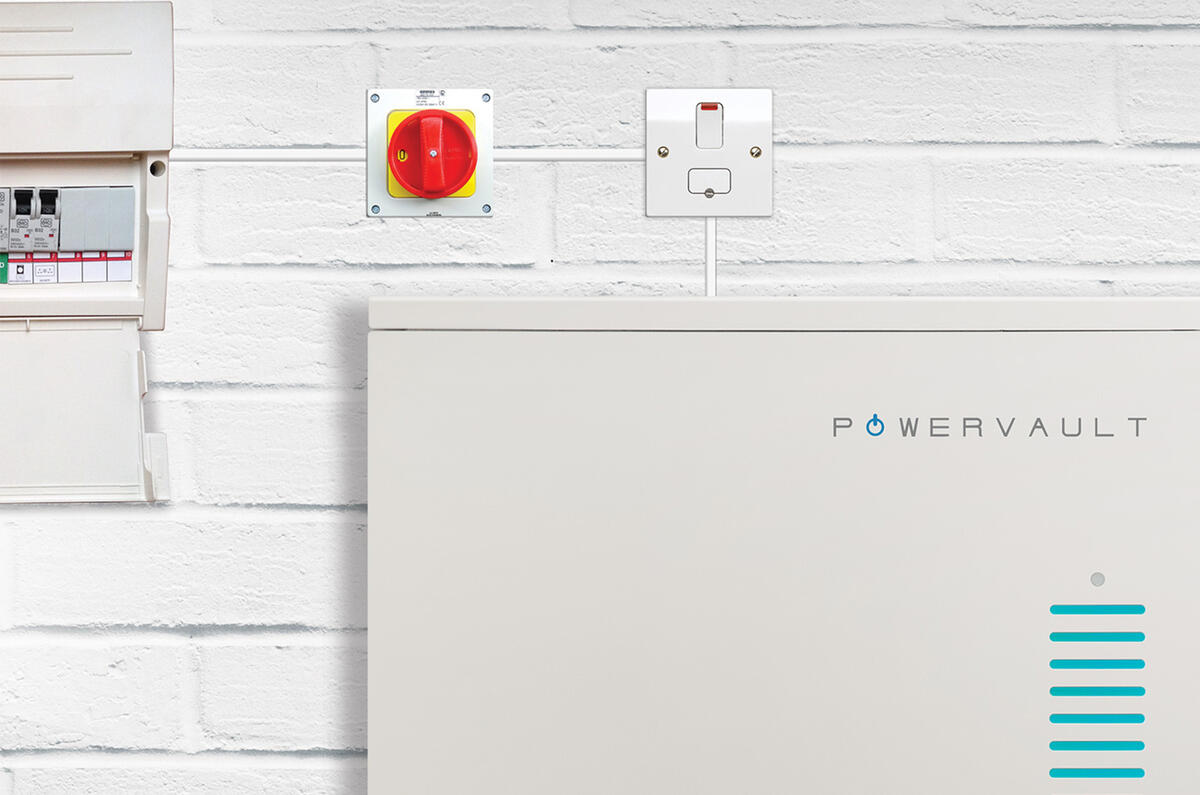Renault will repurpose used electric vehicle batteries with home energy company Powervault, into a home storage system akin to Tesla’s Powerwall.
Powervault claims that using former electric vehicle batteries in this way could recede the cost to consumers of a Powervault ‘smart battery’ by 30%. This will help the company on its mission to reach the tipping point of home energy storage ownership in the UK, as the second life packs will start at around £3000; down from around £4300.
An initial production run of 50 units made from repurposed Renault electric vehicle batteries will be made, and supplied to selected homes fitted with solar panels who are customers of M&S Energy, as well as Greenwich schools and some social housing residences. Renault and Powervault aim to gauge the repurposed batteries’ performance compared with conventionally-sourced ones, as well as attain customer feedback.
Customers with solar panels are being selected, as the packs allow them to store energy collected from the panels, as well as charging at off-peak grid times, allowing the cheaper energy to be used later, when the cost may be higher to use electricity straight from the grid.
Renault claims that the added usage on top of the batteries’ life inside an electric vehicle can more than double their entire life cycle; after eight to ten years of use in EVs, the batteries can be used for around a further ten years in a Powervault.
Speaking of the recycling process, a Powervault spokesman said: "The batteries are taken back by Renault dealers and removed from cars. Then the car packs are taken apart and the 48 li-ion battery ‘modules’ within it are tested and graded. Those over 70% of their original state of health are then repacked into smaller portable battery packs by Powervault."
"Each pack is 8 modules which gives 2.5KWh of battery capacity. One, two or three of those packs can then be fitted into a Powervault unit in a customer home. Any modules which are below 70% state of health may be found other ‘second life’ homes or recycled responsibly."
Read more:
EV and combustion-engined car ownership costs to equalise by 2025, says Renault
Dynamic EV charger that works at 60mph could end range anxiety
Insight: why demand from China could spur growth of electric car sales





Join the debate
Add your comment
Nissan
Storing solar is a key benefit
Clever financial ploy
Ploy? Just common sense